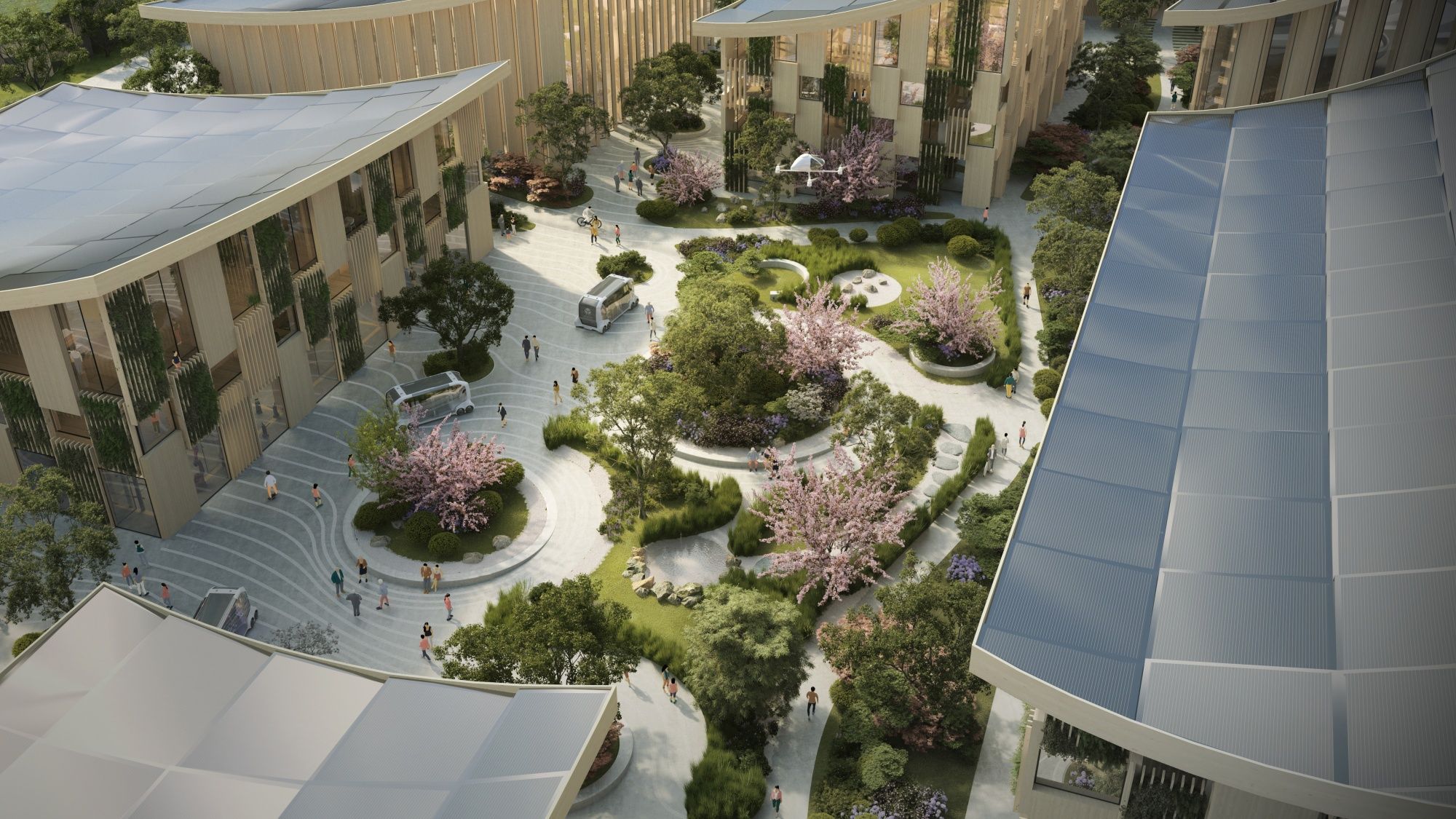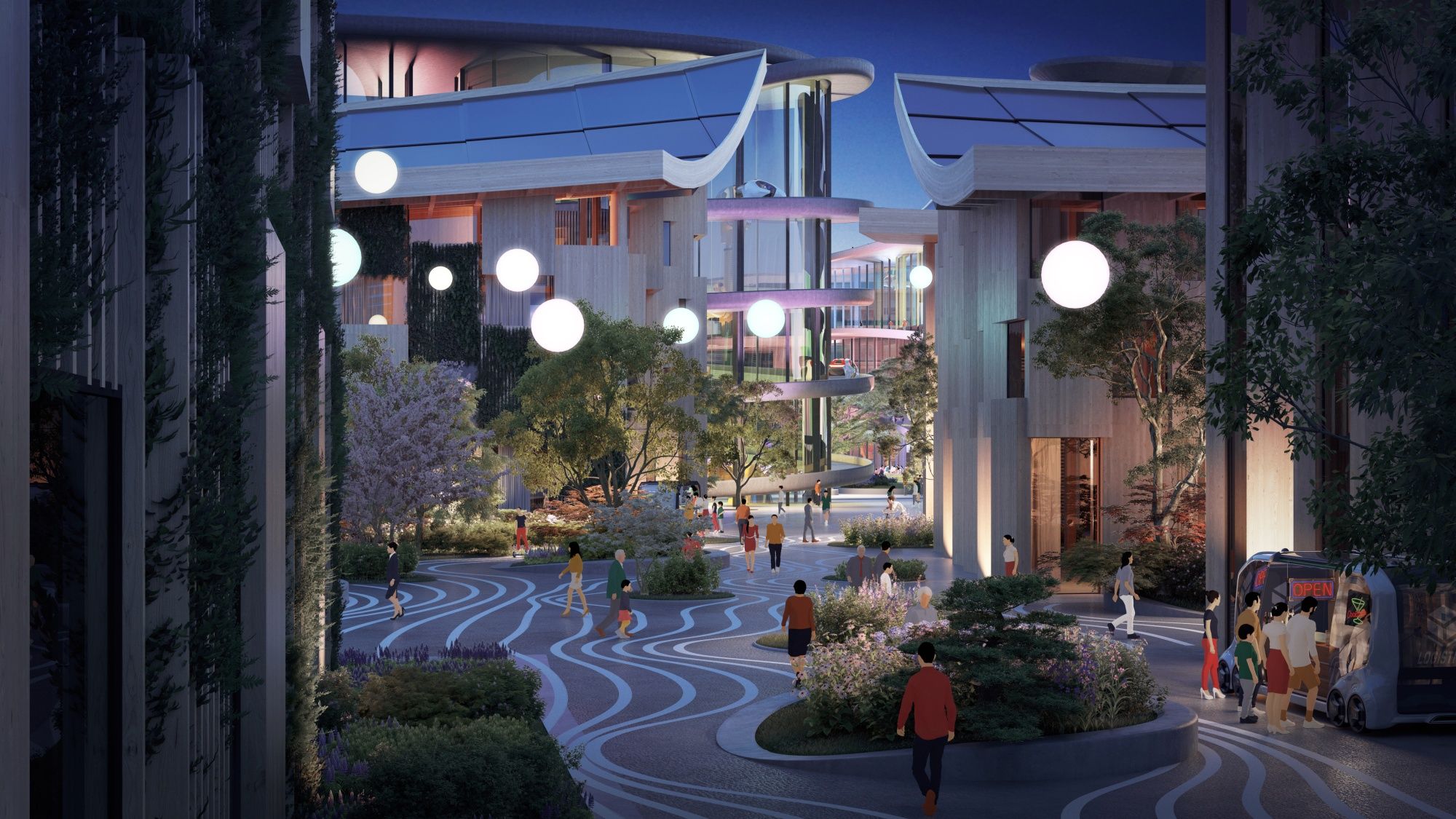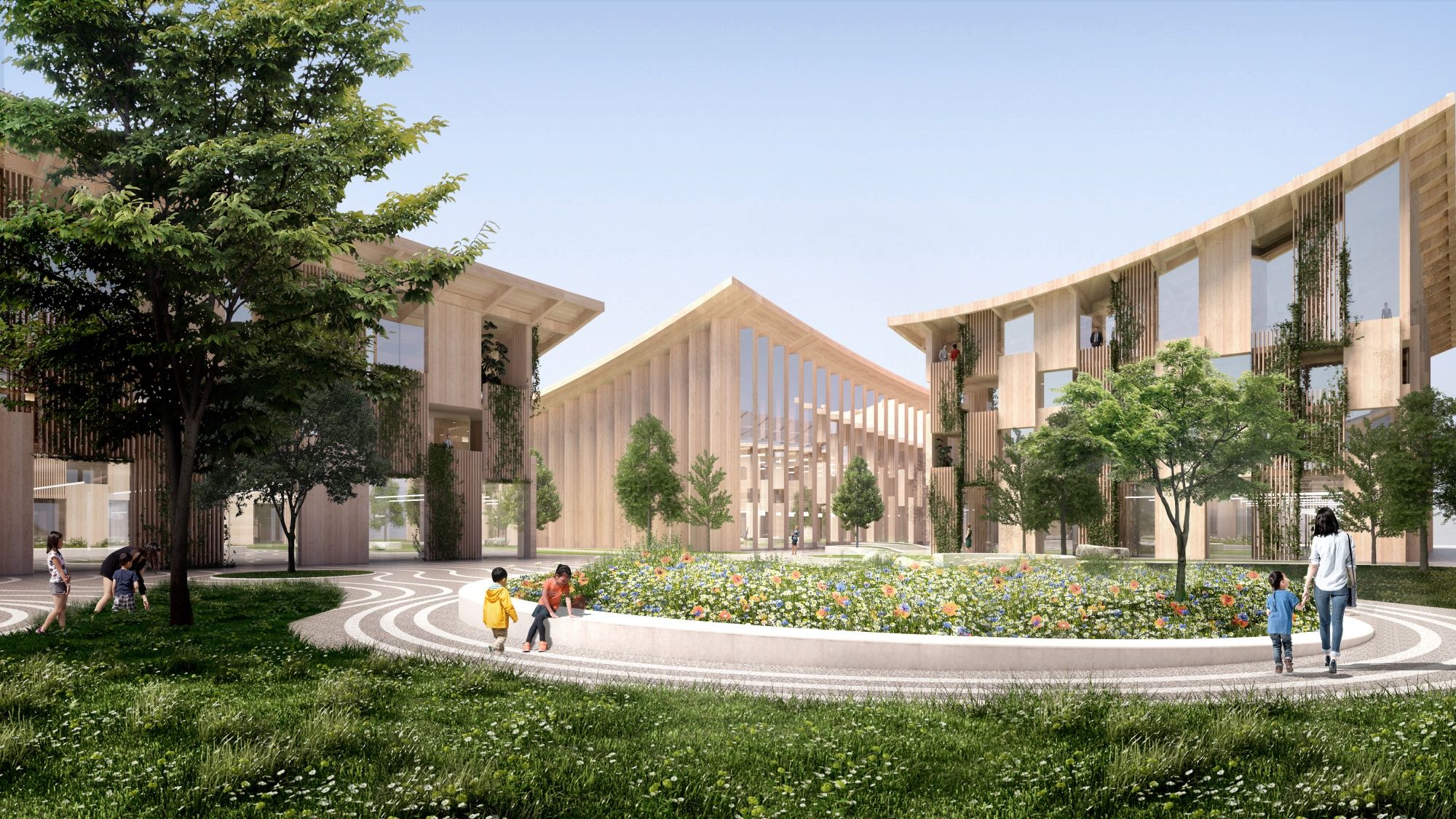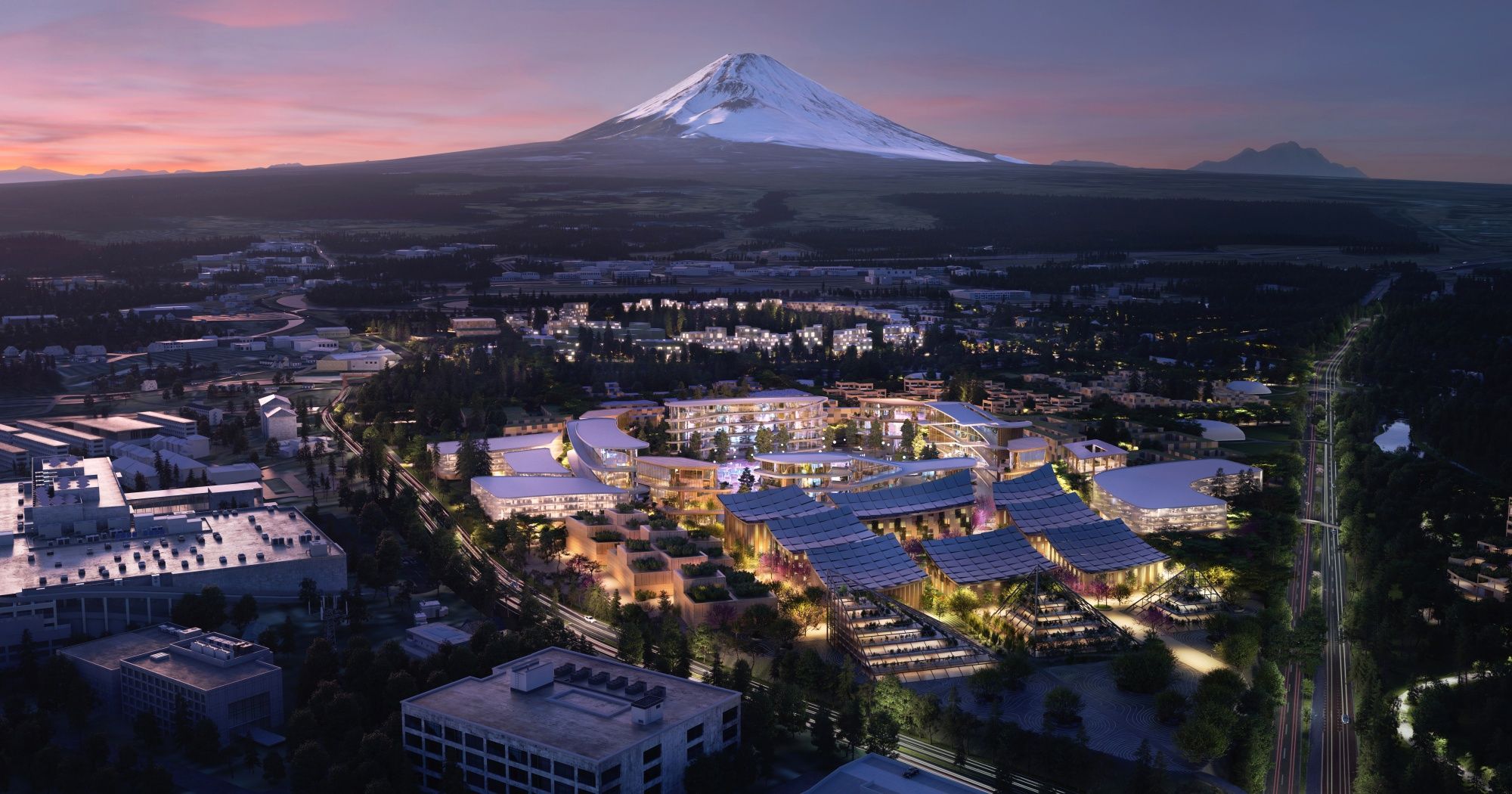Japan has embarked on an ambitious project: Toyota Motor Corporation plans to build a fully autonomous city of the future. Detailed in an article by Bloomberg CityLab, we summarize the key points for you.

The new city is set to be constructed in a picturesque location at the foot of Mount Fuji, just a couple of hours’ drive from Tokyo. Previously, this area housed a factory that had been producing cars since the 1960s but recently closed. Now, this site will be occupied by new technologies.

Experts predict that by 2040, more than 30 million driverless vehicles will be on roads worldwide. However, today’s most advanced autonomous technologies still require vigilant driver oversight. According to experts, the missing link to solving this problem is new cities that can transmit large volumes of data to driverless cars, enabling them to operate more intelligently on their own.
This idea led to the creation of Woven City, a “city woven from many threads,” which will be equipped with thousands of sensors. The city will test autonomous vehicles for passenger transport and goods delivery. The construction is planned to be completed by 2024.

Typically, the onboard sensors of driverless cars extract information from the environment. The innovative concept of Woven City is to use sensors and cameras scattered across roads, traffic lights, and buildings—and possibly even data from mobile phones—to collect information about everything: from pedestrian movement to weather conditions. This data stream will then create a “digital twin” of the living city. According to developers, these data can be transmitted to vehicles, allowing them to navigate the real world safely without human intervention.

In Woven City, so-called “E-palettes”—transparent transport vehicles resembling flat pallets that can carry up to 20 passengers—will move along smart streets. These electronic platforms will travel on special lanes for driverless transport. They can not only transport people but also deliver packages and even serve as mobile storefronts. Besides futuristic transport, the city will also feature smart homes capable of automatically taking out the trash and restocking refrigerators.
The first residents of Woven City will be about 360 scientists, retirees, and Toyota employees. This number is expected to grow: the company reports having received over 3,000 applications from volunteers.

However, to scale the project and implement Woven City’s innovations in other cities, there are still challenges to overcome, including public distrust of driverless vehicles and convincing people that sharing data with cars is entirely safe. Although, from a purely technical standpoint, transferring the Woven City platform to existing cities will become possible in 5-10 years.



